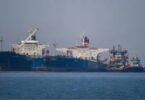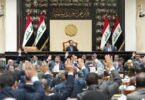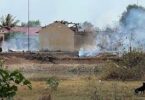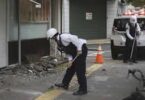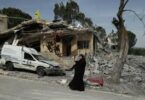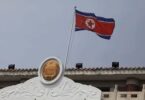Sibel Ugurlu
ANKARA: Turkey’s president on Wednesday said Syria’s territorial integrity depends on keeping all terror groups at bay.
“Sustaining Syria’s territorial integrity depends on setting the same distance towards all terror groups,” President Erdogan said following the tripartite summit on Syria.
The summit was held in the capital Ankara with the participation of the Turkish, Russ-ian, and Iranian presidents.
In a joint news conference afterwards, Erdogan said Turkey is taking necessary care to fulfil its responsibilities on de-escalation zones.
On the summit, Erdogan said the leaders determined steps that will be taken in the coming days to resolve the Syrian crisis.
Mentioning how the first tripartite summit was held in Sochi, Russia last November, Erdogan said the Ankara summit would be followed by a third summit in Tehran.
“The main aim of the tripartite summits is to rebuild a Syria where peace prevails,” he added.
Last year’s Sochi summit discussed progress made in the Astana, Kazakhstan peace talks and changes in de-escalation zones across Syria.
On Syria’s ongoing humanitarian crisis, Erdogan said: “The losers of the crises and conflicts are the Syrian people; we all know very well who the winners are.”
“We invested $31 billion with the help of our nongovernmental organizations,” Erdogan said, adding that Turkey is taking care of 160,000 Syrians who returned to their homes in Jarablus, Al-Rai, and Al-Bab.
Erdogan criticized the European Union for not keeping its promise to pay €3 billion euros to aid Syrian refugees in Turkey, adding: “However, we will continue our investments here whether we receive it or not, as we feel obligated to do so.”
“Turkey values solidarity with Russia and Iran over our Afrin operation,” said Erdogan, adding that grounds for peace in Afrin would be established in cooperation with intelligence agencies, army chiefs, and ministers of the three countries.
Turkey launched Operation Olive Branch in Afrin, northwestern Syria on Jan. 20 in the face of growing YPG/PKK terrorist threats from the region. He expressed Turkey’s readiness to take action in the northern Syrian city of Tal Rifaat along with Russia and Iran to build a peaceful environment for its residents.
Erdogan said: “I find it useful to repeat it here once again that we [Turkey] will not stop until all regions under PYD/PKK control, primarily Manbij, are secured … We will never allow either Syria or our region to be attacked by a few terrorist groups.”
– Rouhani: Everybody must recognize Syria’s unity
“No understanding that fails to accept that Daesh and PYD/YPG serve the same aim can ever contribute to lasting peace and stability in Syria,” Erdogan said, adding that initially a path for Daesh was paved in efforts to sow chaos, then later the YPG/PYD was placed in Syria using counter-terrorism efforts as an excuse.
“That way the terror-cycle was completed,” he asserted.
Erdogan called on the international community to support a political solution to the Syrian crisis.
“We call on the international community once again to support efforts to reach a fair and practicable political solution to the Syrian issue.”
For his part, Iranian President Hassan Rouhani said: “We want everybody to recognize the unity of Syria.”
“We particularly emphasize that everybody should take Syria’s territorial integrity and national sovereignty into consideration,” Rouhani said.
“No country has the right to decide on the future of Syria. It concerns only the Syrian people and belongs to them,” he stressed.
Saying the primary aim of Turkey, Iran and Russia is restoring peace and security to the region, Rouhani said the three want to expand aid to oppressed Syrians.
Rouhani also emphasized the leading role of the three countries in counter-terrorism activities in Syria.
– ‘Turkey, Russia, Iran to ensure Syria’s territorial integrity’
Russian President Vladimir Putin said: “The joint decision of Turkey, Russia and Iran is to ensure Syria’s territorial integrity and sovereignty.”
He added that the three leaders discussed how to establish permanent normalization in Syria.
Describing the joint decision as “a principal attitude,” Putin said for years certain circles had been fueling sectarian and ethnic conflicts in the Middle East.
Putin said the three leaders agreed to continue the tripartite cooperation, saying its effectiveness was provided by the Astana format.
Putin underlined that violence in Syria had been reduced considerably as a result of the cooperation of Turkey, Russia, and Iran as guarantor countries, adding that Daesh’s main terrorist forces in Syria were defeated and the military forces of other terror groups were destroyed.
Backing Erdogan’s call for imminent humanitarian aid in Syria, Putin said Iran’s president also supports the proposal.
“We will work on that and take concrete steps,” Putin said. He pointed to Russia’s ef-forts to develop Syria’s social and economic infrastructure. “Russian companies are developing some projects in areas once occupied by the terrorists … who were trying to damage our efforts to enhance the peace process in the region.”
In a joint declaration Wednesday after a tripartite summit in the Turkish capital Ankara, the Turkish, Russian and Iranian presidents stressed their joint resolve to oppose separatism as well as the use of terrorism as an excuse for changing Syria.
The statement, following a nearly two-hour closed-door meeting among Turkish President Erdogan, Russian President Putin, and Iranian President Rouhani, said the leaders “reject all attempts to create new realities on the ground under the pretext of combating terrorism.”
They emphasized their strong and continued commitment to Syria’s sovereignty, independence, unity, territorial integrity and non-sectarian character. It added that they “expressed their determination to stand against separatist agendas aimed at undermining the sovereignty and territorial integrity of Syria as well as the national security of neighboring countries.”
-Supporting Syrians writing new constitution
The leaders “expressed their conviction that there could be no military solution to the Syrian conflict and that the conflict could be ended only through a negotiated political process.”
They voiced their commitment “to follow up on the results of the Congress, reflecting the will of representatives of all segments of the Syrian society, in particular the agreement to form a Constitutional Committee, supported by the UN Secretary-General and the international community.”
They reiterated “the necessity to assist the Syrians in restoring the unity of their country and in achieving a political solution of the ongoing conflict through an inclusive, free, fair and transparent Syrian-led and Syrian-owned process based on the free will of the Syrian people and leading to a constitution enjoying the support of the Syrian people, and free and fair elections with the participation of all eligible
Syrians under appropriate UN supervision”.
They underlined that the A-stana, Kazakhstan format “had been the only effective international initiative that had helped reduce violence across Syria and had contributed to peace and stability in Syria, giving impetus to the Geneva process in order to find a lasting political solution to the Syrian conflict,” the statement added.
The presidents also reaffirmed their determination to continue their active cooperation on Syria for the achievement of a lasting cease-fire between the conflicting parties and advancement of the political process as envisaged by UNSC Resolution 2254.
-Combating terrorism
The three countries will continue cooperation in order to “ultimately eliminate” Daesh, al-Nusra Front, and all other individuals, groups, undertakings and entities associated with Al-Qaeda or Daesh, said the statement.
The leaders underlined, in the fight against terrorism, that separating terrorist groups from armed opposition groups that had joined or would join the cease-fire regime carries utmost importance for preventing civilian casualties.
-Vow to protect civilians, facilitate humanitarian aid
The presidents also underscored their joint determination to “speed up their efforts to ensure calm on the ground and protect civilians in the de-escalation areas as well as to facilitate rapid, safe and unhindered humanitarian access to these areas” They stressed that the creation of de-escalation areas was temporary as provided for under a May 2017 memorandum.
“They called upon the international community, particularly the UN and its humanitarian agencies, to increase its assistance to Syria by sending additional humanitarian aid, facilitating humanitarian mine action, restoring basic infrastructure assets, including social and economic facilities, and preserving historical heritage,” the statement said.
The statement also took note of developments on Syria since their previous meeting last November in Sochi.
The last summit was held in Russia’s Black Sea resort of Sochi on Nov. 22 to discuss progress made in the Astana peace talks and changes in Syria’s de-escalation zones.
One of the decisions made at the summit was to hold the next one in Iran, at Rouhani’s invitation. (AA)

